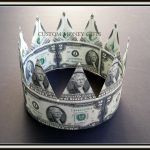We are in a persistent low interest rate environment and this shows no apparent indicators of changing in the near future. Many people who have been accustomed to getting 5% and higher produces on CDs, treasury bonds, and other “safe money” musical instruments are now confronted with increasing maturities and have to decide how to proceed with the funds.
What should risk averse investors (or investors who keep a few of their profile “safe”) do with these funds? If you have older instruments maturing, there aren’t many palatable choices. Investors really have two options: accept lower comes back, and stay “safe,” or accept more risk and hopefully create higher returns. Before one decides which of these two paths to take some soul searching is to be able.
= $ =p> Why have these money were held by you? What is your tolerance for loss? If you lose a few of the principal of these funds, exactly what will the impact be on your way of life and financial position? Do you have to earn the very least amount of return on this money that exceeds what “safe” equipment currently offer? The answers to these questions will drive the decision you make ultimately.
If you merely cannot accept the reduced returns currently offered by “safe” instruments, you shall have to take more risk in order to make your minimal come back. Conversely, if you fail to accept any risk to the main of these funds, it might be better to accept the low returns offered by “safe” instruments even though you have to spend down some of the principal. If you choose to stay “safe,” your goal should be to minimize the harm from low rates and keep your options open up should rates rise.
I would suggest a variety of online deposit accounts, 5 yr CDs with suitable early drawback penalties, as well as perhaps some Series I savings bonds (I bonds). 250,000), instant liquidity, and the ability to earn more if rates of interest rise. The major drawback is that these kinds of accounts provide lowest yield even if you shop around. The ultimate way to minimize the harm is to choose one of the most competitive banks for online savings accounts. At the right time of writing this, Kiplinger’s lists Discover Bank or investment company as the best-yielding online checking account of .90%.
- Get cash back for shopping
- Starbucks Fights Hot Startup on Delivery in China
- When have you worked in a negative team? Which steps did you try make it better
- Macroeconomics: Aggregative Models eJournal
Some or all your “safe” money could be placed into long-run instruments so long as you still have the choice of cashing out without taking a serious beating if rates rise. For example, a 10-calendar year treasury is a terrible idea for individuals unless you are convinced rates will continue to drop and stay surprisingly low for a long time.
If rates increase a couple of percent, a 10-yr treasury would lose something between 10 and 15% depending on how long the rate rise takes. That is unacceptable for “safe” money. A much preferable alternative is something like a 5-year CD with a modest early surrender charges. Such an instrument is really as safe as a treasury bond, offers three times the interest of the 5-year treasury, and allows you to liquidate for 2% of the CD if rates rise or you suddenly need the money.
However, if you choose to buy a longer-term CD read the small print carefully. Early withdrawal penalties vary very broadly between banking institutions (some offer no early surrender option in any way, normal with broker-sold CDs), so look for a CD with charges of no more than 12 months’ worth of interest. 10, a 12 months in I bonds 000. 10,000 per person annual purchase limit, and the fact that the interest changes every 6 months.
I bonds bought through April 30, 2012 will yield 3.06% for the first six months after purchase, but beyond that the rate may be as low as zero. If you opt to accept an increased level of risk, there are a wide range of possibilities. What do I do? I keep about 10% of my profile in “safe” tools. I think about this to participate my set-income allocation, but additionally it is a genuine way to generate gobs of cash if the commode hits the windmill.







